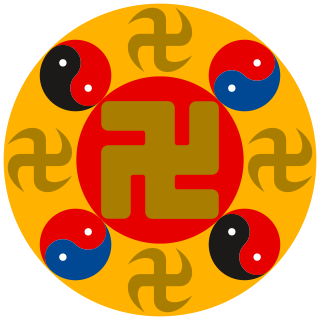
Falun Gong or Falun Dafa is a new religious movement. Falun Gong was founded by its leader Li Hongzhi in China in the early 1990s. Falun Gong has its global headquarters in Dragon Springs, a 400-acre (160 ha) compound around Cuddebackville in Deerpark, New York, near the current residence of Li Hongzhi. Falun Gong's performance arts extension, Shen Yun and two closely connected schools, Fei Tian College and Fei Tian Academy of the Arts, also operate in and around Dragon Springs.
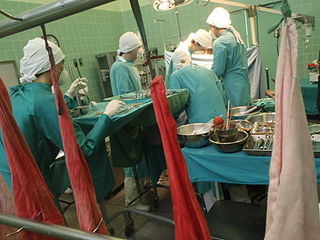
Organ transplantation is a medical procedure in which an organ is removed from one body and placed in the body of a recipient, to replace a damaged or missing organ. The donor and recipient may be at the same location, or organs may be transported from a donor site to another location. Organs and/or tissues that are transplanted within the same person's body are called autografts. Transplants that are recently performed between two subjects of the same species are called allografts. Allografts can either be from a living or cadaveric source.
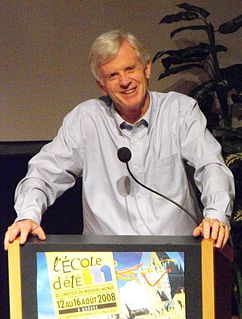
David William Kilgour is a human rights activist, author, former lawyer, and Canadian politician. He is also a Senior Fellow to the Raoul Wallenberg Centre for Human Rights.

Capital Medical University, also known as CMU, is a university in Beijing, China, which was originally called Beijing Second Medical College (北京第二醫學院).

Chen Yonglin is a former Chinese diplomat who sparked fears of a diplomatic incident through his defection to Australia in the summer of 2005. The episode highlighted the tensions faced by China's trade partners when concerns arise from that nation's human rights record. The episode was compared to the Petrov Affair by such observers as Shadow Minister for Immigration Laurie Ferguson and trade unionist Bill Shorten.
The murder of human beings for their body parts is a crime in all countries.

Falun Gong, also called Falun Dafa, is a spiritual practice and system of beliefs that combines the practice of meditation with the moral philosophy articulated by its founder, Li Hongzhi. It emerged on the public radar in the Spring of 1992 in the northeastern Chinese city of Changchun, and was classified as a system of qigong identifying with the Buddhist tradition. Falun Gong initially enjoyed official sanction and support from Chinese government agencies, and the practice grew quickly on account of the simplicity of its exercise movements, impact on health, the absence of fees or formal membership, and moral and philosophical teachings.
Dr. Wang Wenyi is a pathologist who once worked as a journalist for The Epoch Times. She is known for having confronted Jiang Zemin, General Secretary of the Communist Party of China in 2001, and protested for the forced organ harvesting in China with General Secretary Hu Jintao on 20 April 2006 in White House. According to press reports, she was protesting against Communist China's human rights abuse especially the organ harvesting from living Falun Gong practitioners.
The Coalition to Investigate the Persecution of Falun Gong in China (CIPFG) is an international non-governmental organization established in the United States on April 5, 2006 by the Falun Dafa Association. The organization also has offices in Canada.

Organ transplantation in China has taken place since the 1960s, and is one of the largest organ transplant programmes in the world, peaking at over 13,000 liver and kidney transplants a year in 2004. Involuntary organ harvesting is illegal under Chinese law; though, under a 1984 regulation, it became legal to remove organs from executed criminals with the prior consent of the criminal or permission of relatives. Growing concerns about possible ethical abuses arising from coerced consent and corruption led medical groups and human rights organizations, by the 1990s, to condemn the practice. These concerns resurfaced in 2001, when a Chinese asylum-seeking doctor testified that he had taken part in organ extraction operations.

David Matas is the senior legal counsel of B'nai Brith Canada. He has maintained a private practice in refugee, immigration and human rights law since 1979. He has published various books and manuscripts and currently resides in Winnipeg.
Masanjia Labor Camp is a re-education through labor camp located in the Yuhong district near Shenyang, in the Liaoning province of China. The facility is sometimes called the Ideology Education School of Liaoning Province. It was first established in 1956 under China's re-education through labor, or laojiao policy, and was expanded in 1999 in order to detain and "re-educate" followers of the Falun Gong spiritual practice. According to former detainees, Falun Gong practitioners represent 50–80% of inmates in the camp. Other prisoners include petty criminals, prostitutes, drug addicts, petitioners, and members of other unapproved religious minorities, such as underground Christians.
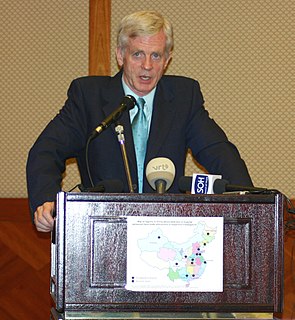
The Kilgour–Matas report is a 2006/2007 investigative report into allegations of live organ harvesting in China conducted by Canadian MP David Kilgour and human rights lawyer David Matas. The report was requested by the Coalition to Investigate the Persecution of Falun Gong (CIPFG) after allegations emerged that Falun Gong practitioners were secretly having their organs removed against their will at Sujiatun Thrombosis Hospital. The report, based on circumstantial evidence, concluded that "there has been, and continues today to be, large-scale organ seizures from unwilling Falun Gong practitioners." China has consistently denied the allegations.
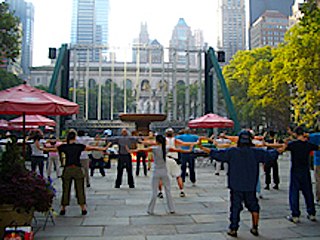
Qigong, qi gong, chi kung, or chi gung is a system of coordinated body-posture and movement, breathing, and meditation used for the purposes of health, spirituality, and martial-arts training. With roots in Chinese medicine, philosophy, and martial arts, qigong is traditionally viewed by the Chinese and throughout Asia as a practice to cultivate and balance qi, translated as "life energy".

The persecution of Falun Gong is the antireligious campaign initiated in 1999 by the Communist Party of China to eliminate the spiritual practice of Falun Gong in China, maintaining a doctrine of state atheism. It is characterized by a multifaceted propaganda campaign, a program of enforced ideological conversion and re-education and reportedly a variety of extralegal coercive measures such as arbitrary arrests, forced labor and physical torture, sometimes resulting in death.

Ethan Gutmann is an American writer, researcher, author, and a Senior Research Fellow in China Studies at the Victims of Communism Memorial Foundation whose work has investigated surveillance and organ harvesting in China.

Human Harvest is a 2014 documentary film, directed by Vancouver filmmaker Leon Lee, which follows the investigative work by Canadian Nobel Peace Prize nominees David Matas and David Kilgour on whether and how state-run hospitals in China harvested and sold organs, by killing tens of thousands of prisoners of conscience, who are mainly Falun Gong practitioners.

Gao Rongrong was an accountant at an art college in Shenyang, China. She was dismissed in 1999 for practicing Falun Gong. Gao was reportedly sent to the Longshan Forced Labor Camp in July 2003.

Forced organ harvesting from Falun Gong practitioners and other political prisoners in China has raised increasing concern within the international community. According to a report by former lawmaker David Kilgour, human rights lawyer David Matas and journalist Ethan Gutmann, political prisoners, mainly Falun Gong practitioners, are being executed "on demand" in order to provide organs for transplant to recipients. The organ harvesting has taken place both as a result of the Chinese Communist Party's persecution of Falun Gong and because of the financial incentives available to the institutions and individuals involved in the trade.
The China Tribunal is a non-governmental People's Tribunal to inquire into forced organ harvesting in China. It is headquartered in London. The chair of the China Tribunal is Sir Geoffrey Nice QC, lead prosecutor at the trial of Slobodan Milošević in the International Criminal Tribunal for the Former Yugoslavia (ICTY). Other members include Professor of Paediatric Cardiothoracic Surgery at University College London Martin Elliott, and historian Arthur Waldron.














